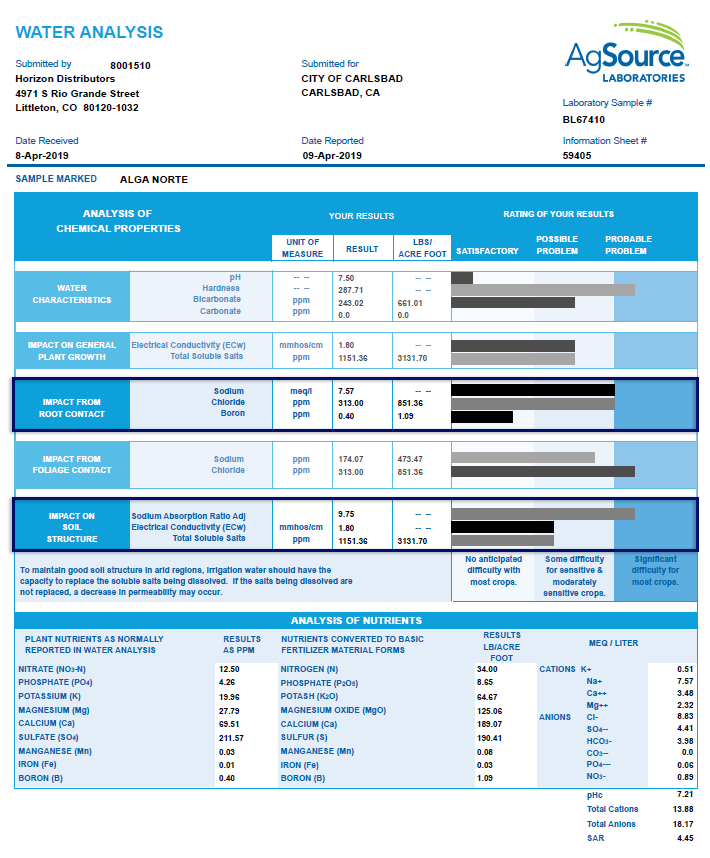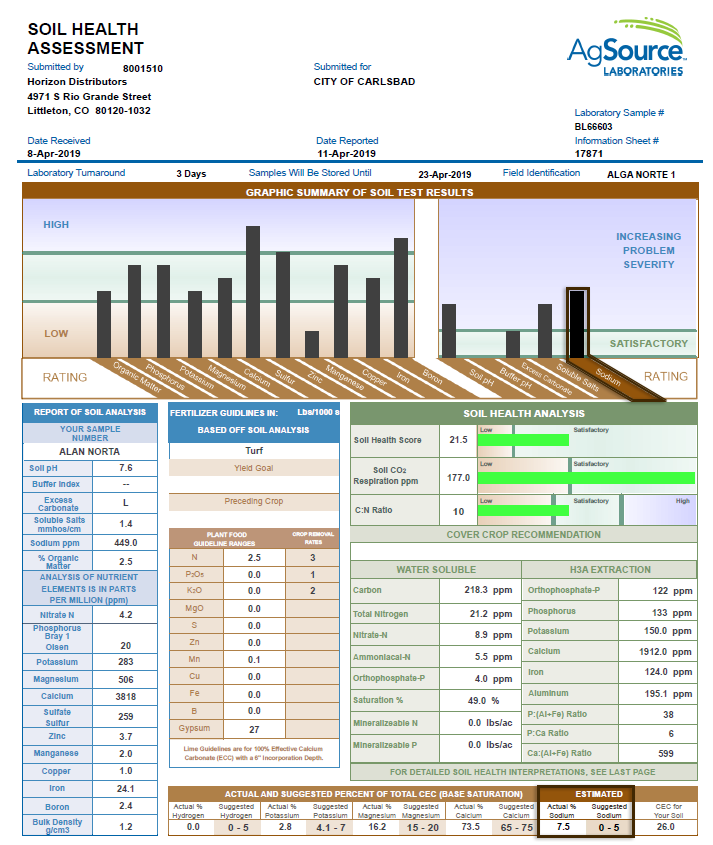- Categories:
- Maintenance
- Irrigation

Water is by far the most influential resource in landscape management. It is primarily used to hydrate the plants in the landscape, and it may be abundantly available or scarce depending on your climate and/or region. Water is the carrier of applied nutrients that support plant growth, delivering them to the rootzones of the plants. These nutrients are then delivered throughout the plants by this same water.
Not all water is the same when it comes to irrigation suitability. Irrigation suitability is the capacity of the water to support a plant’s needs while not hindering its ability to grow. We use different water sources to support our landscapes, the most common being potable (domestic) water, non-potable (reused or reclaimed) wastewater and well water. Each of these sources add elements to the water such as salts and bicarbonates that damage water quality and threaten the health of your turf and plants.
Domestic water sources are often (but not always) adequate, but well water and reclaimed wastewater are not. These sources contain an abundance of these minerals and negatively impact plant growth and soil structure. The longer these liabilities go uncorrected, the more they accumulate in your soils. It is just a matter of time before the chemical structure of your soil mimics that of the water.
Take a look at these soil and irrigation suitability tests, both from a non-potable irrigation source. You can see that the soil test is reflective of the liabilities of the water – in this case excessive salts.


Hard Water
Poor water quality can also affect everyday practices such as spraying pesticides by impacting the chemical’s efficacy. Hard water antagonism is a condition where minerals in the water bond with the pesticide during the tank mix and prevent it from going into solution. As a result, the pesticide cannot effectively enter and move through the plant. These common minerals (salt, calcium, magnesium, bicarbonate) are all associated with and contribute to elevated pH and water hardness.
A systemic herbicide needs to absorb into the weed to kill it. But when bonded with minerals in the water, the newly bonded molecule is now too large to be absorbed by the plant. The weed’s growth may be stunted, however chemical ‘resistance’ begins to develop. If left unchecked, ‘resistance’ evolves into ‘tolerance’, rendering the herbicide chemistry completely ineffective. Hard water can also start to degrade the chemical as soon as the pesticide and the water are mixed – thus drastically reducing the efficacy of the spray solution.
If your herbicides are not working as well as they used to – or as well as you feel they should be – chances are it’s your water that’s working against you. Fortunately, hard water is easily corrected by adding ammonium sulfate to your tank, such as TurfGro Water Conditioning Agent. This inexpensive additive will improve your herbicide’s performance and reduce your overall cost.
It is important to KNOW YOUR WATER so you can treat it before it has a chance to sabotage your efforts. The only way to know it is to test it with a water test strip like Hach’s AquaCheck 7. These water test strips should be your spray tech’s best friend. By using them consistently, you can easily recognize issues in your water and take the necessary steps to correct it.